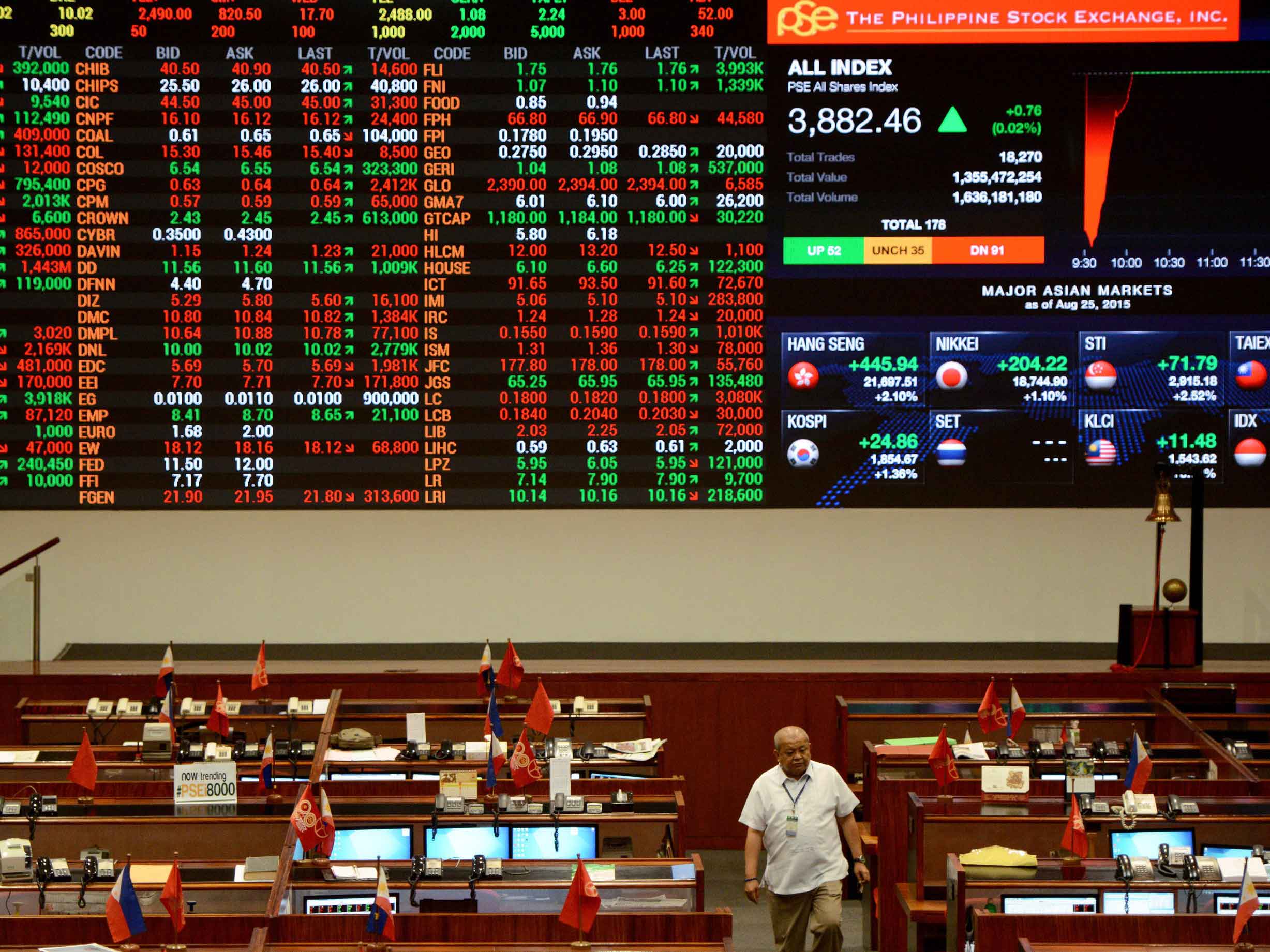
The Philippines became the first major country to shut its financial markets in the wake of the coronavirus crisis, after all stock, bond and currency trading was halted on March 17. Although other markets have closed trading floors or paused trading, the Philippine Stock Exchange (PSE) is the first to order a blanket ban.
“Please be advised that there will be no trading at the Philippine Stock Exchange… and no clearing and settlement at the Securities Clearing Corporation of the Philippines starting tomorrow, March 17, 2020 until further notice to ensure the safety of employees and traders in light of the escalating cases of the coronavirus disease (COVID-19),” read a memo shared by the exchange.
The Philippines has recorded a sharp rise in coronavirus cases of late, with the country’s main island of Luzon placed in quarantine this week in order to stem the tide of infections
The Philippines has recorded a sharp rise in coronavirus cases of late, with the country’s main island of Luzon – home to the capital Manila – placed in quarantine this week in order to stem the tide of infections. Recent figures place the number of confirmed cases in the country at 142, with 12 confirmed deaths.
The spread of the virus has wreaked havoc with financial markets around the world. On March 16, the S&P 500 fell by 12 percent, representing the biggest single-day decline since Black Monday in 1987, while the Dow Jones Industrial Average experienced a similarly chastening day. Meanwhile, the PSE’s circuit breaker, designed to limit market volatility, was triggered for the first time since 2008 last week, after a fall of 10 percent.
As the virus continues to make its impact felt across the globe, all but the most necessary of gatherings are being discouraged or prohibited, leaving trading floors deserted. Although some trading can occur remotely, many stock markets may soon be following the PSE’s lead to reduce the likelihood of mass sell-offs.


